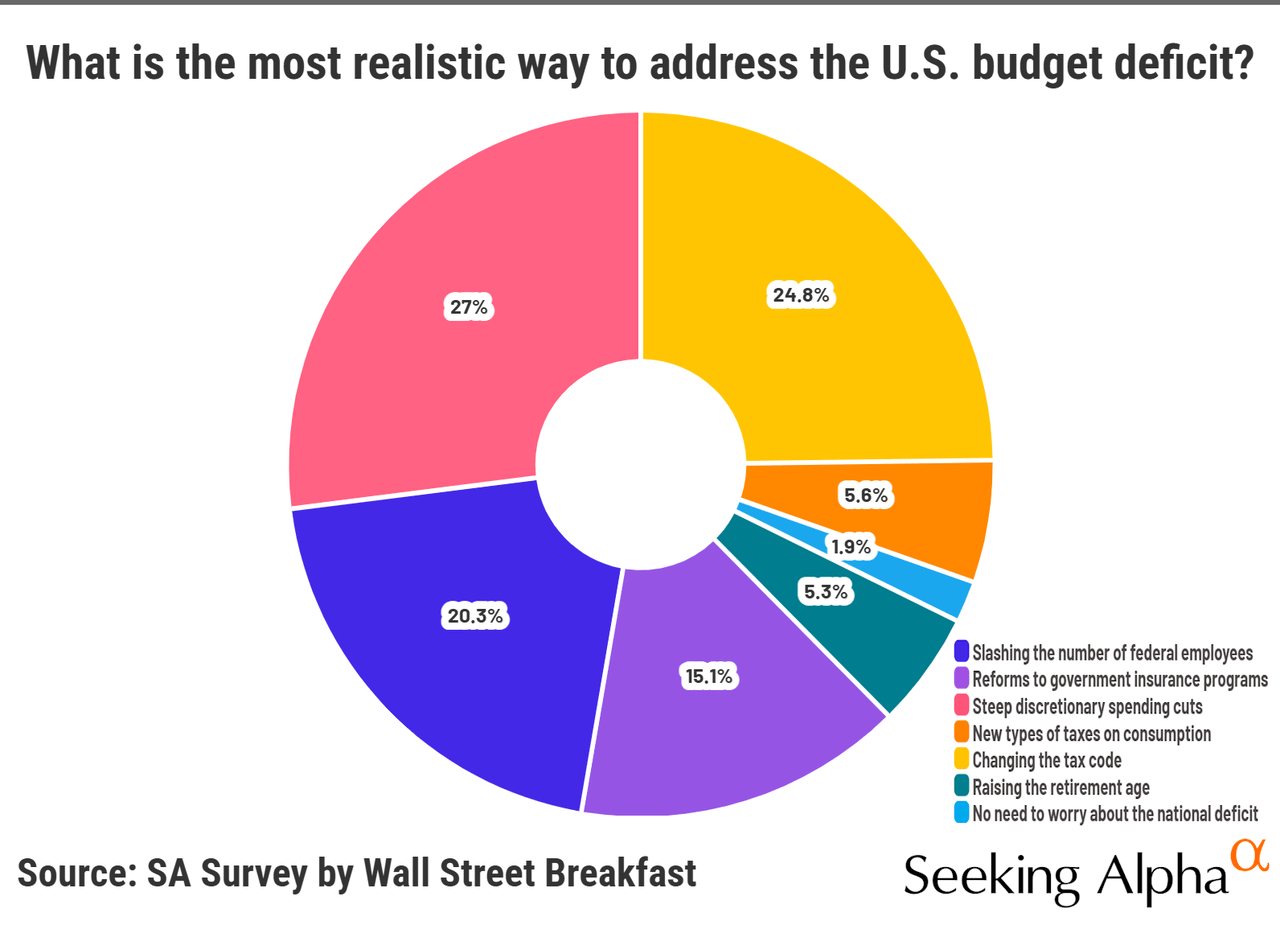
PM Images
The U.S. government is spending a lot more than it’s earning, with the budget deficit crossing a whopping $1.8T during FY 2024. This is the highest level ever, excluding the record COVID-era deficits.
To pay for this deficit, the federal government borrows money by selling securities such as Treasury bonds, bills and notes. This has brought on concerns over the supply of bonds.
President-elect Donald Trump has pledged to clash excessive spending, with Department of Government Efficiency co-head Elon Musk claiming the budget can be cut by at least $2T.
So how can this be achieved? Seeking Alpha recently surveyed subscribers on ways to address the budget deficit, receiving around 4,300 responses.
Discretionary spending cuts
The survey’s results showed that most respondents (27%) favor steep discretionary spending cuts. Discretionary spending – which covers defense, transportation, education and other departments – makes up less than a third of overall federal outlays. In 2023, discretionary spending totaled $1.7T.
The current defense budget is $841.4B, and the most realistic cuts could be achieved by reducing manpower. But this could pose risks to national security and the military industrial base.
As for transportation and education programs, cutting budget authority by a third could reduce the deficit by $332B from 2024 to 2032, according to the Congressional Budget Office.
Tax code reform
The second popular option in the survey is changing the tax code (24.8% respondents). Federal tax expenditures, or subsidies through the tax code, resulted in revenue loss of $1.8T for the government in 2023.
According to the Penn Wharton Budget Model, tax reforms could generate federal revenues of $10T over ten years, if enacted in 2025. These include simplifying the tax code and reducing tax-induced distortions, among other steps.
Smaller workforce
The third popular option among the survey’s respondents (20.3%) is slashing the number of federal employees. The government employs over 2M workers, excluding military personnel and Postal Service employees. Compensation for these workers cost the government about $271B in 2022.
Government insurance programs
Reforms to government insurance programs, which were favored by 15.1% of the survey respondents, could make a significant dent in federal spending. The two largest programs are Social Security and Medicare, but Trump insisted that he wouldn’t touch these programs.

